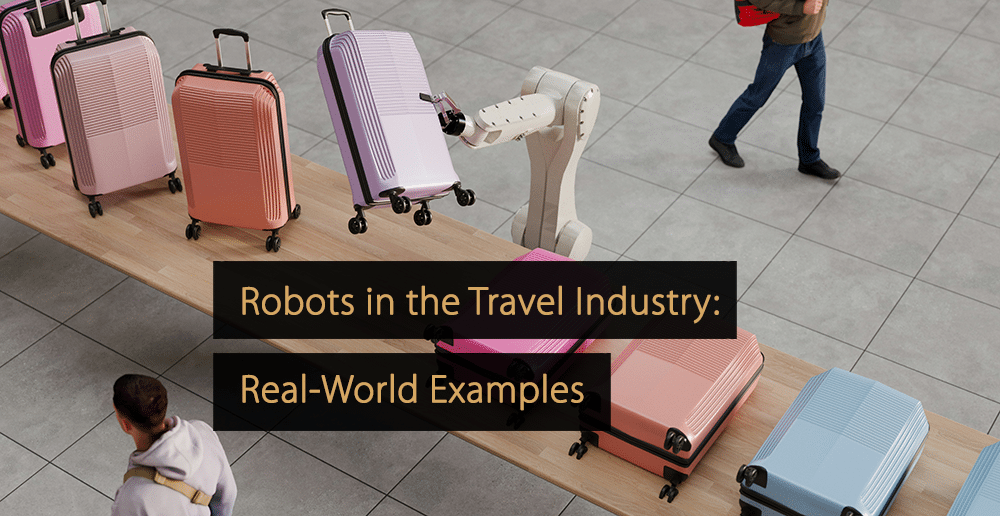Many people seek out travel careers, because they offer a combination of interesting day-to-day challenges, variety, and long-term progression. However, finding and securing your ideal job will require you to take certain steps to stand out from other candidates. This article offers nine practical tips to assist you with this.
Table of Contents:
- A Complete Overview of the Travel Industry
- Travel Careers: Tips to Find a Career in the Travel Industry
- 1. Have the Right Education and Training to Begin Your Travel Career
- 2. Stand Out From the Crowd By Creating a World-Class CV
- 3. Boost Your Travel Career Through Personal Branding Efforts
- 4. Use Travel Job Boards to Find Your Next Travel Career Move
- 5. Remember to Use LinkedIn to Advance Your Travel Career
- 6. Let Recruitment Agencies Specialising in Travel Careers Help You
- 7. Make Sure You Prepare for Your Interview Properly
- 8. Use These Tips to Succeed on the Day of the Interview
- 9. Continuously Network Over the Course of Your Travel Career
- 10. Online Job Boards for Finding Travel Jobs
- Travel & Tourism Management
A Complete Overview of the Travel Industry
If you are hoping to move into a travel career, it is worth taking the time to learn as much as possible about the industry. After all, the travel industry is comprised of several different sectors, including transportation, accommodation, travel services, and food and beverages, and each of these sectors has unique qualities.
Check out the article, “Travel Industry: An Overview of One of the Largest Service Industries”, where you will get a complete breakdown of all the important information you need to know before starting your career.
Travel Careers: Tips to Find a Career in the Travel Industry
The following nine tips can help you to find or advance a travel career.
1. Have the Right Education and Training to Begin Your Travel Career
Travel careers are extremely accessible because many entry-level positions will provide you with the skills required to work your way up through the ranks gradually. However, to advance your career, you are potentially going to need to have the right formal education and/or training, so this should be a priority.
Some senior positions will specify that a degree in a specific subject is required, so acquiring the right qualifications is necessary for those roles. However, a relevant degree can be a significant advantage, even when it is not requested, and if all other things are equal, an employer may select the candidate with the strongest academic background.
Of course, aside from academic qualifications, it is also important to capitalize on any on-the-job training or coaching that is provided so that you develop the necessary skills to advance. There may also be opportunities to attend optional events or seminars, which can help to improve your knowledge and understanding of key topics.
2. Stand Out From the Crowd By Creating a World-Class CV
Having the right skills and qualifications is one thing, but many employers and recruiters will judge you almost entirely on the quality of your CV. You may not be invited for an interview if this fails to meet the required standard. For this reason, you must take the time to work on your CV.
Submit a CV that has been specifically tailored for the job you are applying for. Read the job advertisement and any accompanying information, and highlight your most relevant skills, qualifications, and experience. Try to use the same terminology the business or organization uses when possible.
Your CV should look professional, so check online for template layouts. You must also be careful with your spelling and grammar and avoid including any false or misleading information. Make sure you tick all of the boxes they are looking for, but avoid making your CV too long or detailed. The best CVs are often one or two pages in length.
Video: HOW TO WRITE A BRILLIANT CV! (CV Templates Included!)
3. Boost Your Travel Career Through Personal Branding Efforts
One of the best ways to boost your short and long-term job prospects within the travel and tourism industry is to look after your online presence and use personal branding. Simply put, this is using branding strategies and techniques to enhance your reputation and create a positive impression.
You can do many things to enhance your brand online, such as sharing insights and expertise. The key is to think of it as a marketing exercise – only the thing you are marketing is yourself. Try to be as consistent as possible and authentic, as lies or misleading information can damage your credibility.
Most modern employers will Google your name to learn more about you before offering you a job, so make sure they like what they are presented with. Manage your LinkedIn and other social media accounts and avoid posting anything they wouldn’t want to see. You can also use https://about.me/ to expand your presence via a personal web page.
4. Use Travel Job Boards to Find Your Next Travel Career Move
Employers will often use platforms like job boards for advertising when a position becomes available, and specialized travel job boards are especially useful for them when advertising more advanced roles, such as travel management jobs. With this in mind, as an applicant, the same platforms can be ideal for identifying the next step in your career.
Read “Travel Management Jobs: List of Websites to Find Your Next Job,” and you will have access to a list of online channels that can be used to find and apply for your next job and advance your travel career.
5. Remember to Use LinkedIn to Advance Your Travel Career
LinkedIn is a social media site that allows you to manage your online identity and professional network. This networking also makes it an excellent resource for advancing travel careers because it can put you in contact with people who may be in positions of influence and help you stand out as a good candidate.
However, going beyond this, LinkedIn also has its own job listings feature, allowing employers to post vacancies and candidates to apply for them. It can, therefore, be viewed as an all-purpose career development tool, and it is a channel you should try to make the most of.
6. Let Recruitment Agencies Specialising in Travel Careers Help You
Recruitment agencies are effective intermediaries that help to connect candidates with roles they are suited to, and some agencies specialize in travel careers. Although most recruiters primarily work on employers’ behalf, many also work closely with candidates, getting to know their needs, qualifications, and abilities.
In advancing your career, recruitment agencies are another possible way to gain entry into a job. They are also useful because they tend to have excellent contacts within the industry they specialize in. As a result, recruitment agencies may be able to link you to jobs not advertised elsewhere.
7. Make Sure You Prepare for Your Interview Properly
You must take the required steps to prepare once you have been invited for an interview. First, this will mean taking the time to research the company offering the job. Try to learn as much about the organization and its values as possible, and make sure you understand the role itself.
On top of this, you should buy something smart and appropriate to wear for the interview, and you should also familiarise yourself with the venue and plan out your travel in advance. Finally, go over some common interview questions, come up with some basic answers, and think of a few possible questions.
Video: Top Interview Tips: Common Questions, Nonverbal Communication & More | Indeed
8. Use These Tips to Succeed on the Day of the Interview
When the day of your interview arrives, you must give yourself the best possible chance of succeeding. Make sure you go to bed at a reasonable time the night before to get a good night’s sleep. Arrive at the venue with time to spare to avoid unnecessary stress and ensure your phone is turned off.
Dress appropriately and look presentable. During the interview, display positive body language and maintain eye contact. You should also do your best to give calm and thoughtful answers to questions and avoid panicking or rushing responses. Ultimately, you need to display confidence and enthusiasm while maintaining your composure.
9. Continuously Network Over the Course of Your Travel Career
Finally, it is vital that you make an effort to network over the full duration of your travel career. Success in any industry can often come down to knowing the right people, getting along with them, and staying in contact with them. When you network effectively, you potentially open doors that may otherwise be closed off.
It is important to note that networking can occur both online and offline, and both are valuable. Websites like LinkedIn, Facebook, and Twitter are all useful for online networking. Still, you can connect with people in numerous other ways, including engaging with people’s blogs or web content.
Offline networking can occur naturally over the course of your working life. Still, you can also take specific steps to develop new contacts, such as attending industry events or taking an active interest in clients or customers.
10. Online Job Boards for Finding Travel Jobs
One of the most critical aspects of advancing your travel career is finding and applying for the right roles when they become available. Job boards can play a substantial role because many of these platforms will not only advertise travel jobs but also allow you to apply. Some will even provide extra tools and resources.
Read our article, “10 Online Job Boards for Finding Travel Jobs”, where you will have access to 10 of the most popular websites used by those looking to advance careers in the travel industry.
Travel & Tourism Management
The ultimate goal for many people exploring travel careers is to get into travel or tourism management. That said, managerial positions in the industry come in various forms. It can be crucial to understand what qualifications and skills you may need and what your duties will likely include.
Our “Tourism Management: All You Need to Know About Tourism” article will offer up all of this information and a lot more so that you understand the nature of tourism management before applying.
Ultimately, travel careers are not only accessible but provide superb long-term prospects. By following the nine tips, you can maximize your chances of landing the desired job and taking your career to the next stage.
More Tips to Grow Your Business
Revfine.com is the leading knowledge platform for the hospitality and travel industry. Professionals use our insights, strategies, and actionable tips to get inspired, optimize revenue, innovate processes, and improve customer experience.Explore expert advice on management, marketing, revenue management, operations, software, and technology in our dedicated Hotel, Hospitality, and Travel & Tourism categories.









This article emphasizes the importance of a thorough and strategic hiring process. Very recommendable.